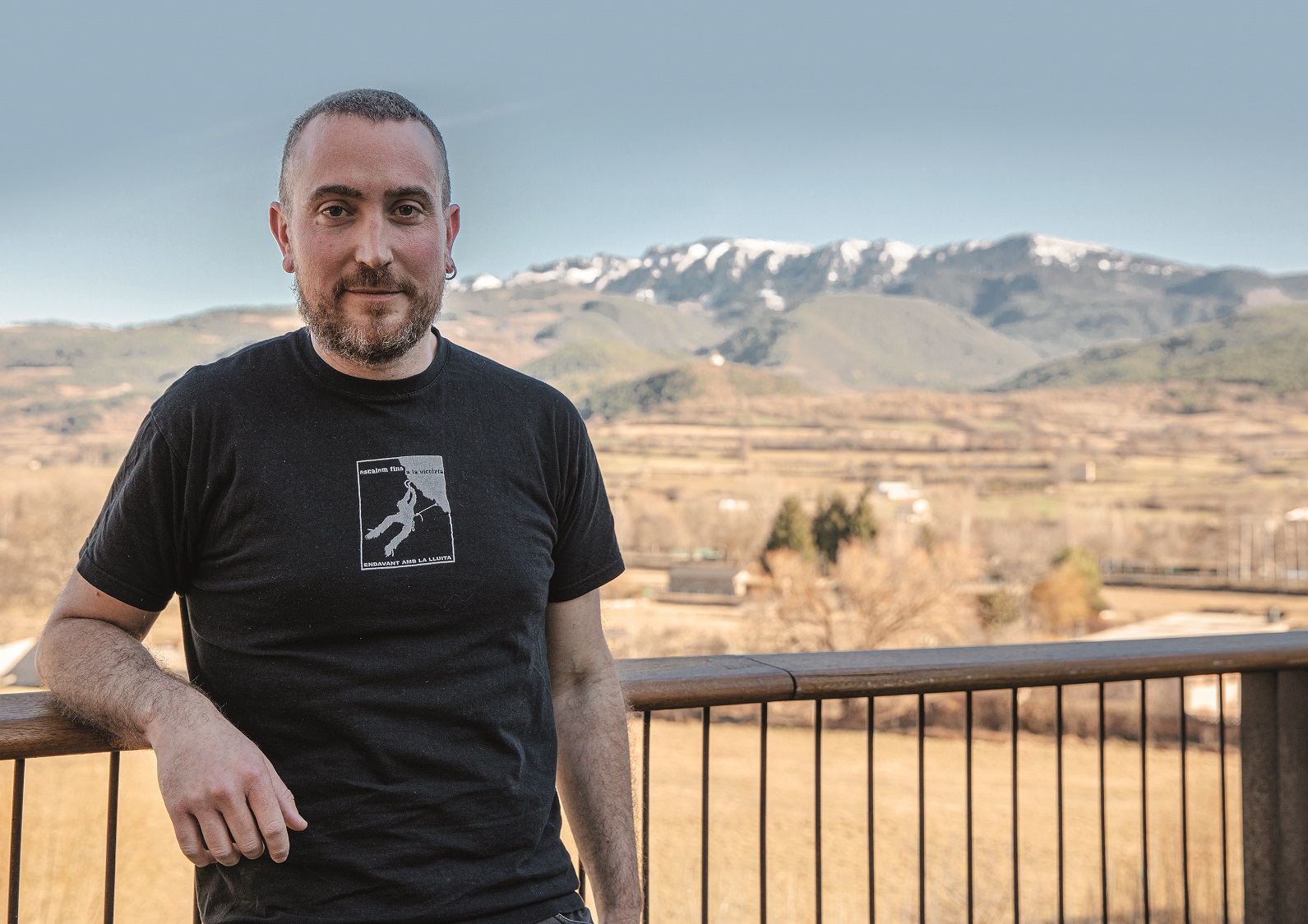Resistance to the Olympic Games, symbol of "party capitalism", from the gardens of Aubervilliers
- The local institutions intend to bake the farmland since 1935 and turn it into pools for the Olympic Games to be held in 2024. Disobedience and occupation are fighting this mega-project. From one city to another, from game to game, the same phenomena are repeated: destruction of natural spaces, savage alteration of the city and how not, allocating a huge amount of public money to its organization. Jules Boykoff, an American athlete and researcher, defines the phenomenon as “party capitalism”.

What happened in Paris knows what is appreciated of the forests, parks or banks of the rivers that suddenly appear in the whirlpool of this city. They include the collective gardens of Aubervilliers. 26,000 square meters of land available to citizens. They began growing up in 1935 and, as they say, have since done so, going through history: “Popular Front, World War II, industrialization and deindustrialization, May 68, subway construction, 2005 barricades, 2008 subprime crisis, coronavirus... Are we going to perpetuate the metropolis of Paris?”
On the occasion of the 2024 Olympic Games, the authorities want to bake and make an Olympic pool. Resistance increases and hardens: occupations, actions and machine blocks. Nolazpait, the battle of Lekaroz in Paris. The JAD Jardins à défendre (gardens to defend) started last summer, occupying the area day and night. “This place is magical, it is a jewelry located in the center of an increasingly urbanized space. Following its logic, what is left of us from ten to twenty years? We need green spaces, especially in a city in Paris,” says a jadist to Reporter’s journalist.
The World Health Organization assures that a city needs at least 10 m2 of nature per person to be habitable, walking around fifteen minutes. They have 1.42 m2 of Aubervilliers. The activists were expelled on 2 September last year to begin the works. Unyielding, on 2 February eight activists tied to the machines until they were arrested by the police. They are also on the road to justice trying to curb the mega-project. Although it is not the final triumph, this February they received the first victory because the project does not respect the urban document PLU. Plaine Commune has four months to prepare the document.
Trying to organize resistance at the international level
Last year, the summer Olympic Games were held in Tokyo, in 2016 in Rio de Janeiro, in 2012 in London, in 2008 in Beijing... The winter ones, this year in Beijing, in Pyeongchang in 2018, in Sochin in 2014 -- and so every four years, until the first in Athens in 1896. The next ten years are consolidated: Paris (2024), Milan (2026), Los Angeles (2028) and Brisbane (2032). Here is nothing to stop the climate emergency, the International Council of the Olympus (JJGG) intends to continue at the festival.
“At the international level, the promoters of the Olympics are organized, we must organize ourselves in the same way” saccage2024.noblogs.org. International meetings against the Olympic Games will be held in Seine-Saint-Denis, Paris area, on 21 and 22 May. Because those mobilized in Paris want to learn from past experiences. Because it repeats the same thing at all times: they completely distort the city, deducting the same social, economic, cultural and ecological damage.
However, the Games do not always have that effect. With television access to all houses and in the context of the Cold War, the curve was given: “Sport became a battlefield for global Supremacy,” says Jules Boykoff, an American athlete and investigator. Integrating the same capitalist approach, Juan Antonio Samaranch, president of the NOBEL, launched the dimension of what we know today in the 1984 Los Angeles Games. It was then that private companies began to subsidize the quotation. In any case, channeling an enormous amount of money from public institutions: For those in Paris, EUR 1.5 billion, 20% of the budget, will be spent in addition to unaccounted expenditure.
Like the notion of “disaster capitalism” by journalist Naomi Klein – taking advantage of times of crisis, war, emergency or confusion on the part of big governments and companies to plunder the lives of citizens and public services – Boykoff uses the term “party capitalism”. Both have the same objective, despite the disaster and the festive atmosphere in one of them: “They open the way for politicians and their economic allies to implement policies that in a normal situation could not be targeted, and this goes beyond the democratic process.” In one and the other, the role of the State is different: if the capitalism of catastrophe implies the weakening of the State and the acceleration of neoliberalism, that of the party is fundamental for the State to receive money for the organization of the party. “They complement each other, they share a group, even if each one has its time: the party capitalism will open the way to the capitalism of disaster and vice versa.”
The Games only increase the hole in the public accounts, as they exceed the planned budget by 179% on average. Rio de Janeiro presented a budget of EUR 9.5 billion, but cost it EUR 16 billion; London spent EUR 4.8 billion and EUR 10.9 billion; Beijing bills EUR 2.6 billion and EUR 32 billion. So, except in Los Angeles in 1984, the only one with balanced accounts. The article of Contrepoints Rio: les J.O les plus chers de l’histoire, stop aux ecès (“Rio: the most expensive O.J. in history, to keep the excess”) explains that it is the result of a “auction” trend, in which the costs are typified and the economic consequences are overvalued as a city of its own to be selected.
Fewer and fewer cities are being presented: It was 11 for 2004 and 5 for 2020 and 2024. It should be noted that for those in 2024 Boston, Hamburg and Budapest had to withdraw their candidature, under pressure from the citizens, limiting competition between Paris and Los Angeles. Same for this year's Games: St Morritz, Munich, Stockholm, Krakow, Lviv and Oslo annulled the candidature leaving Almaty and Beijing to compete. The trend is interesting: then, because of the climate and socio-economic crisis, cities may want to be away from the Olympic Games, leaving them alone in the same center.
Iñigo Llopis igerilari donostiarrak hiru domina irabazi ditu Munduko Txapelketan eta 2021eko Tokio Paralinpiar Jokoetatik zilarra ekarri zuen etxera. Konporta Kirol Elkartean aritu ondoren, Basque Team klubean dabil gaur egun, “Gipuzkoan maila handia dago”... [+]
Txinako Gobernuak egindako “genozidioa eta gizateriaren aurkako krimenak” salatzeko, ez dute ordezkari diplomatikorik bidaliko neguko jokoetara, baina atletek joan ahal izango dute. Txinak irmo erantzun du: “AEBek ordaindu egingo dute boikotagatik”.























